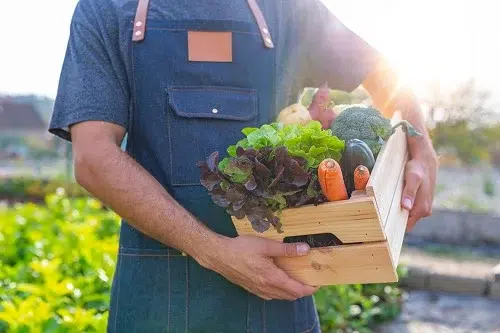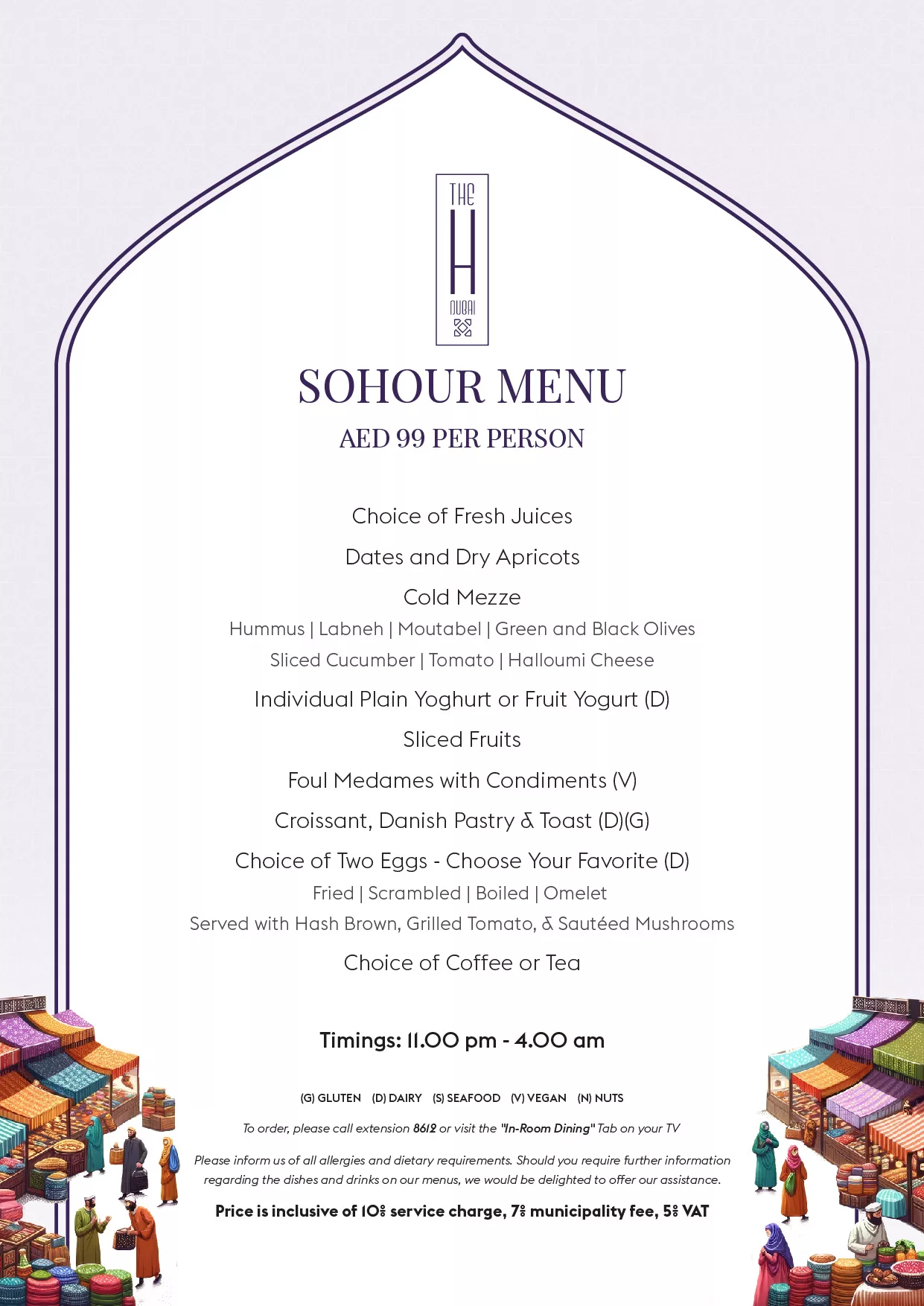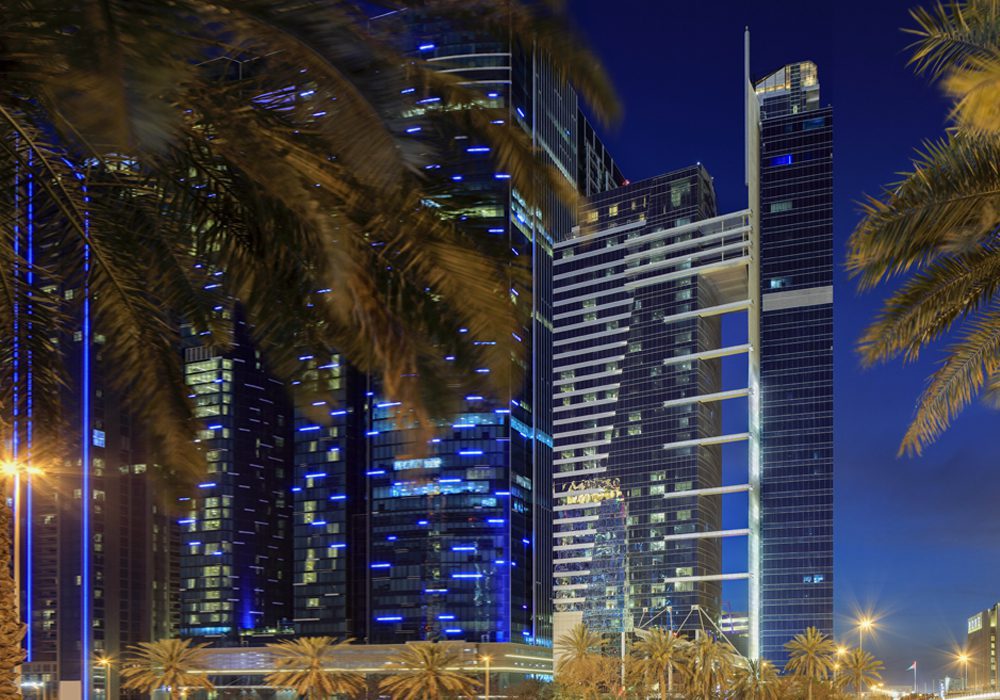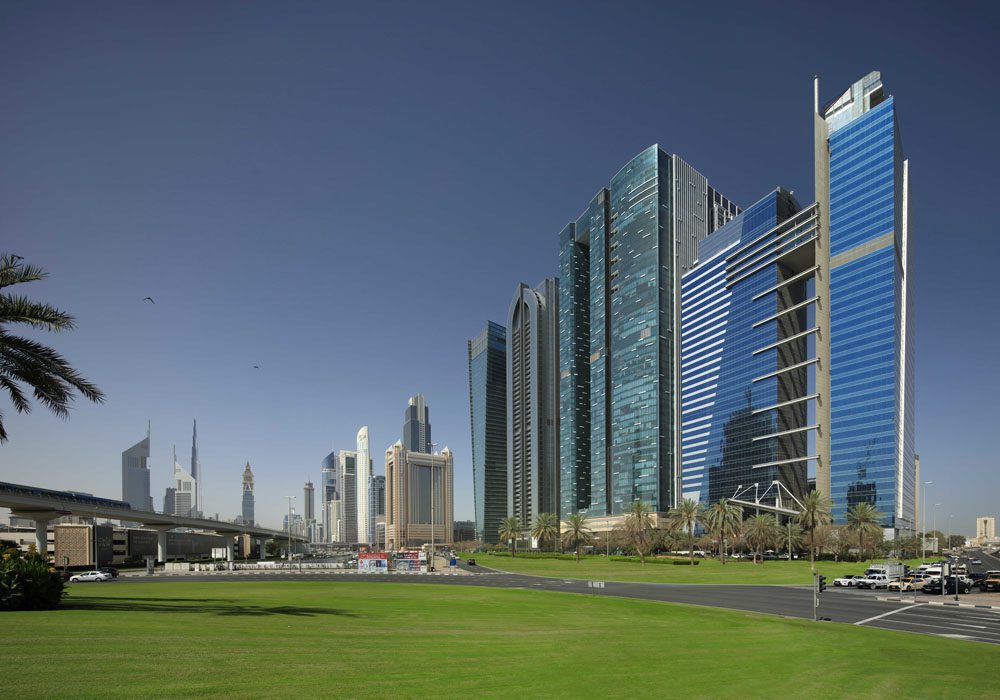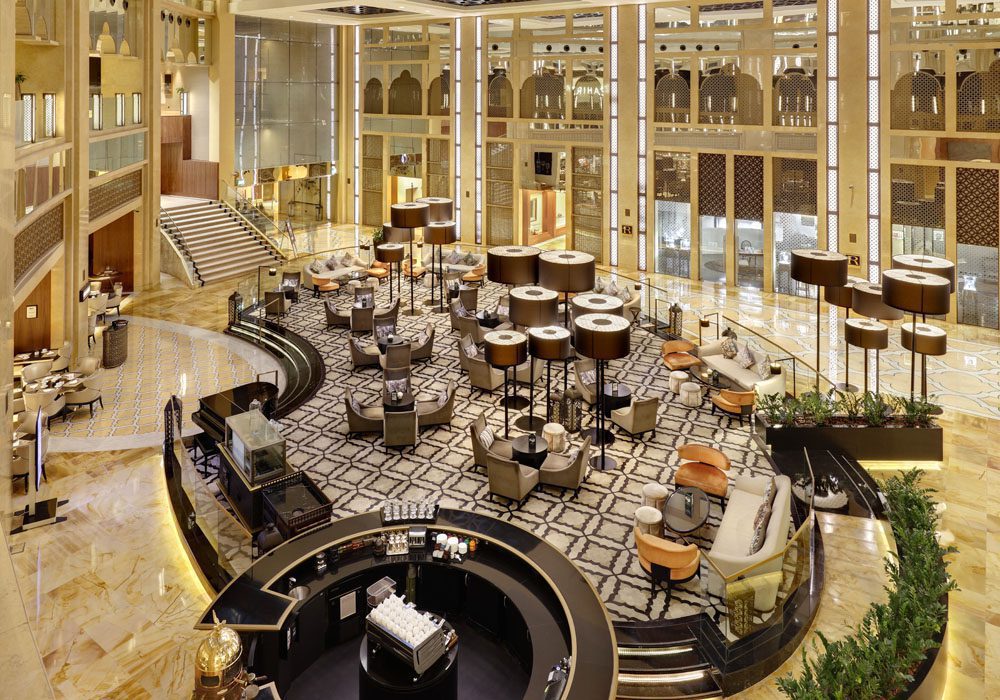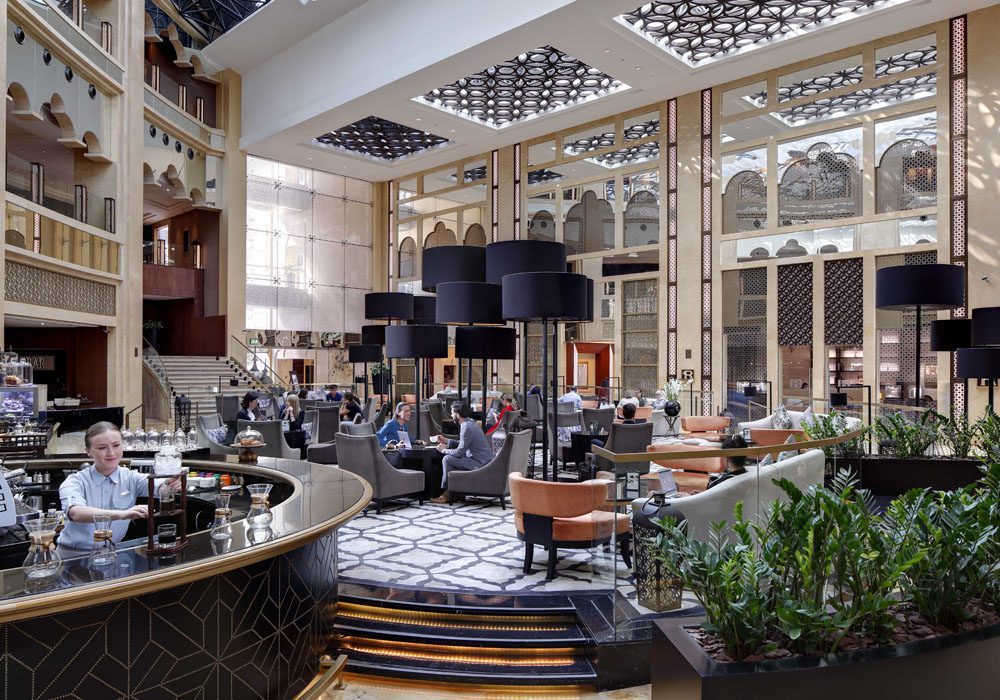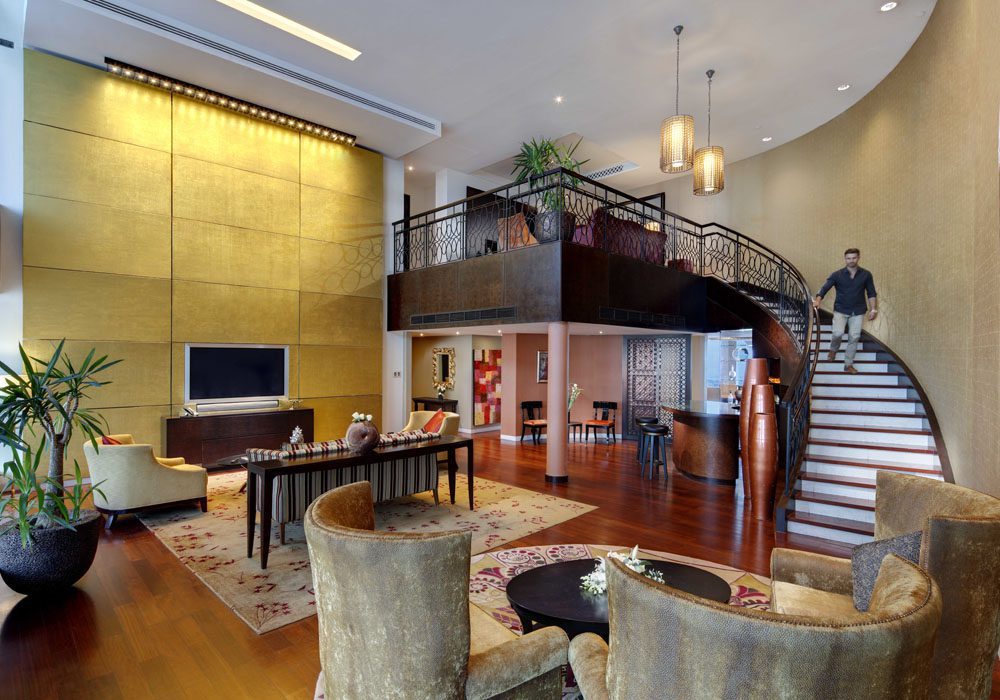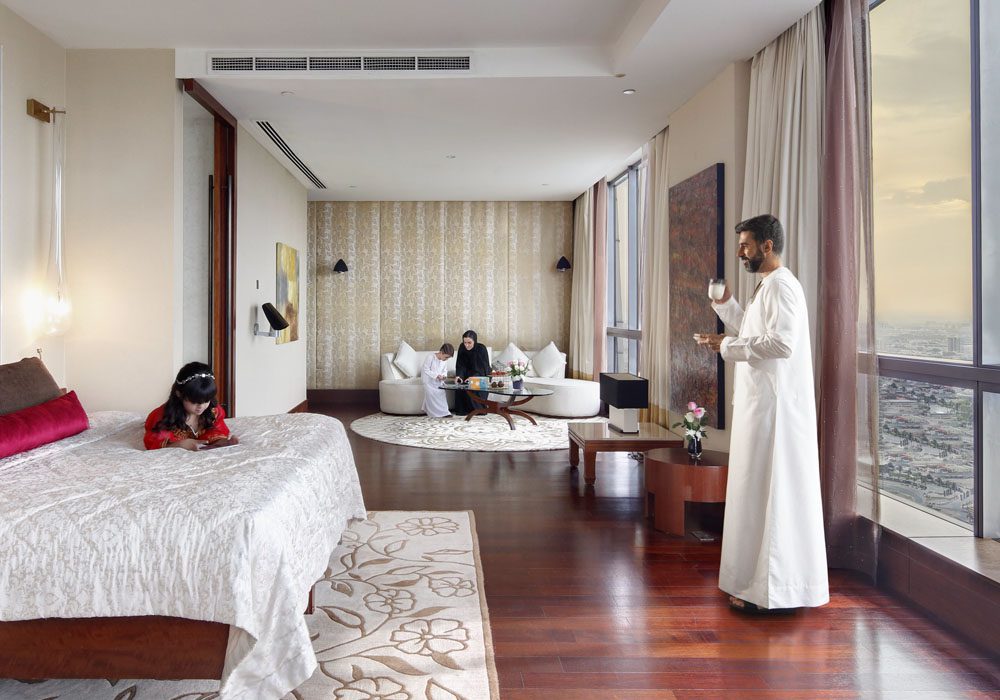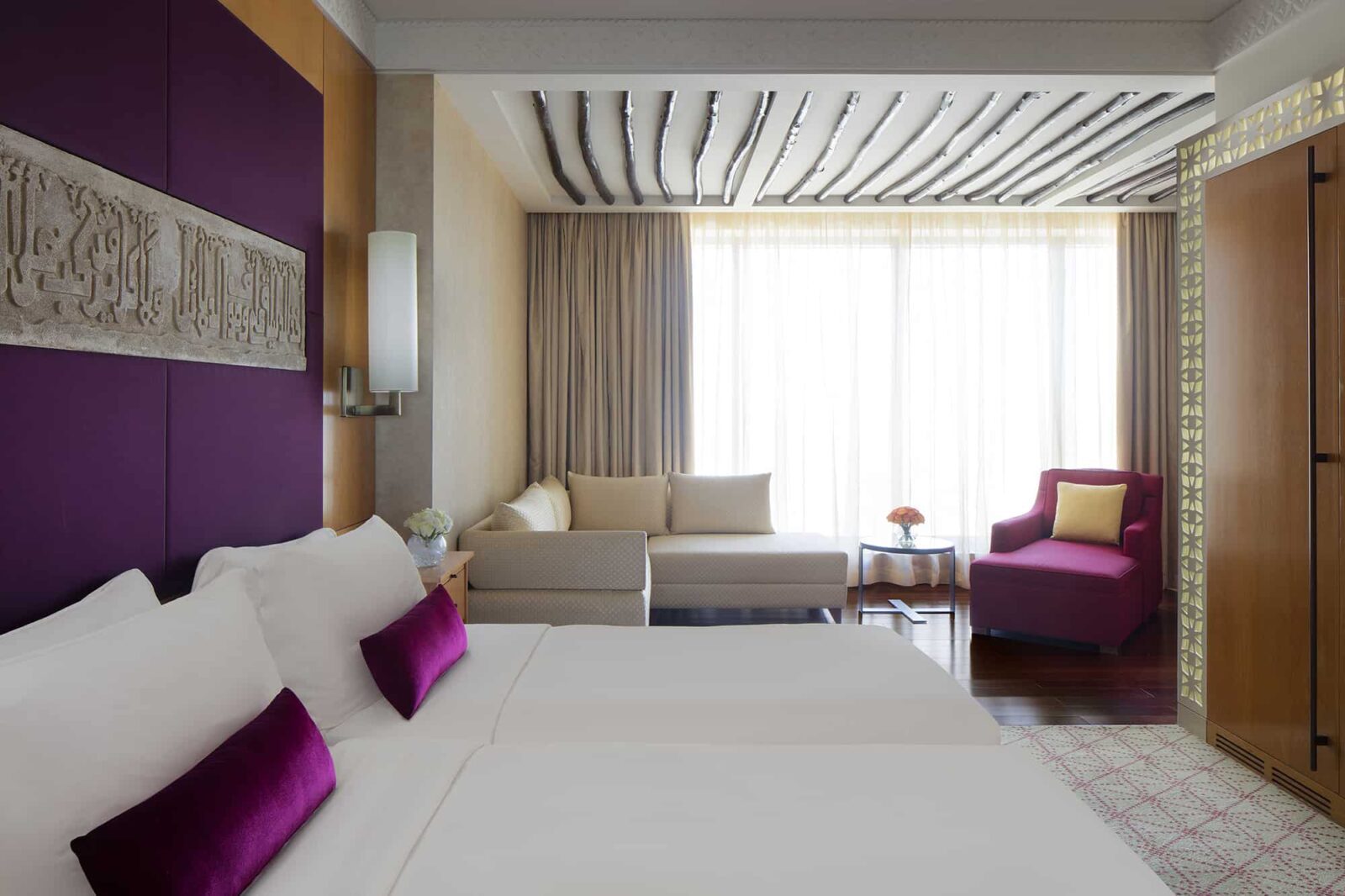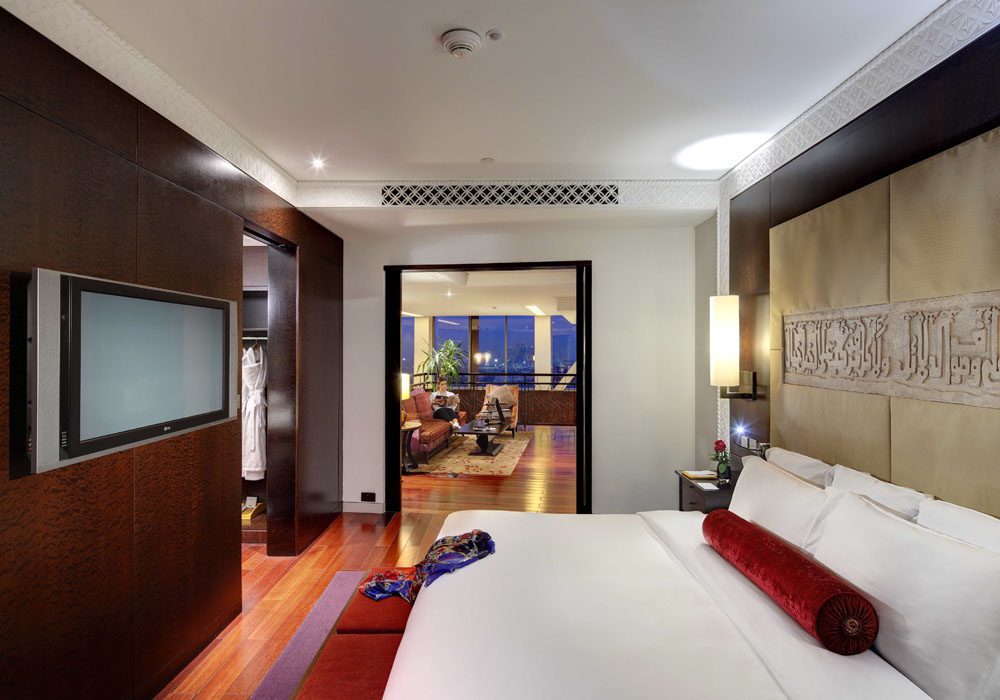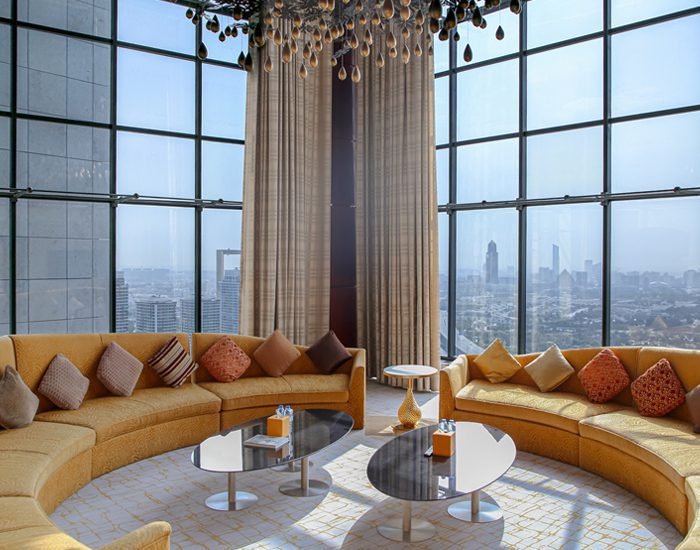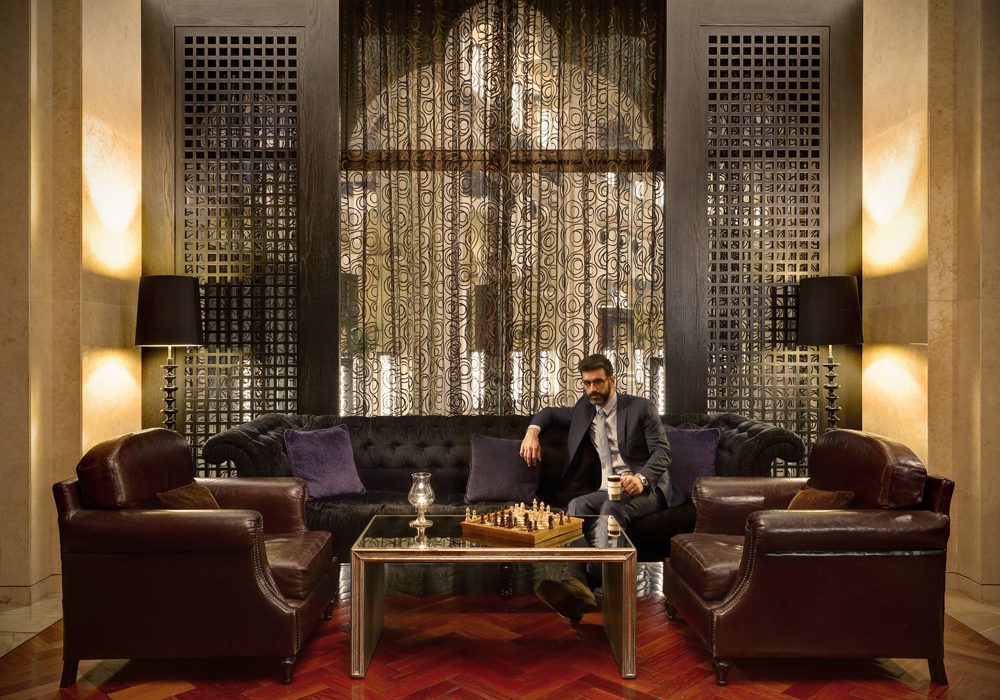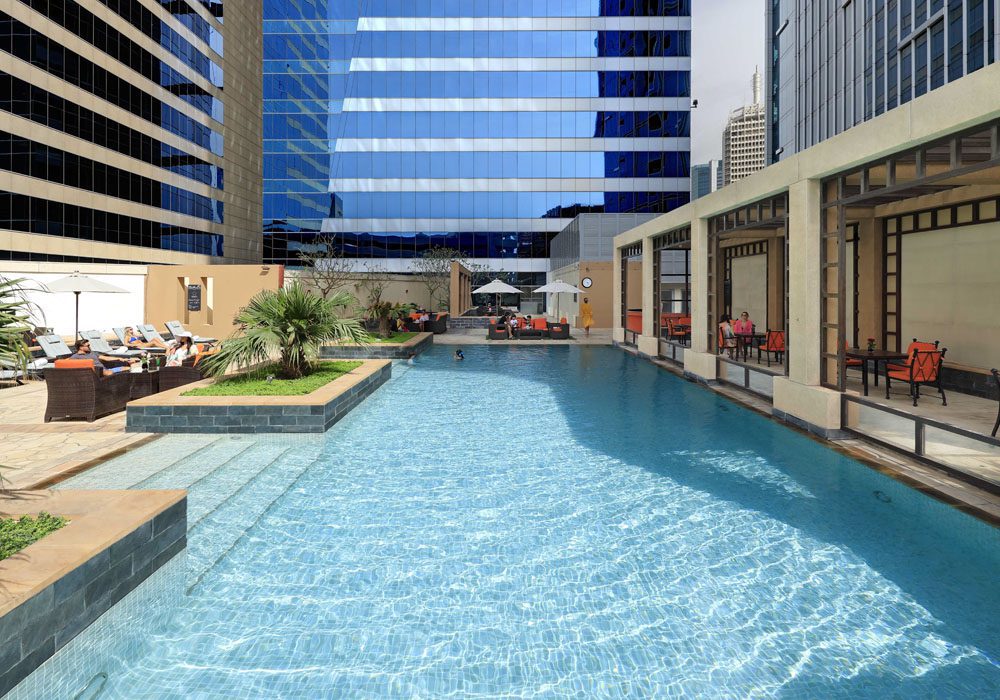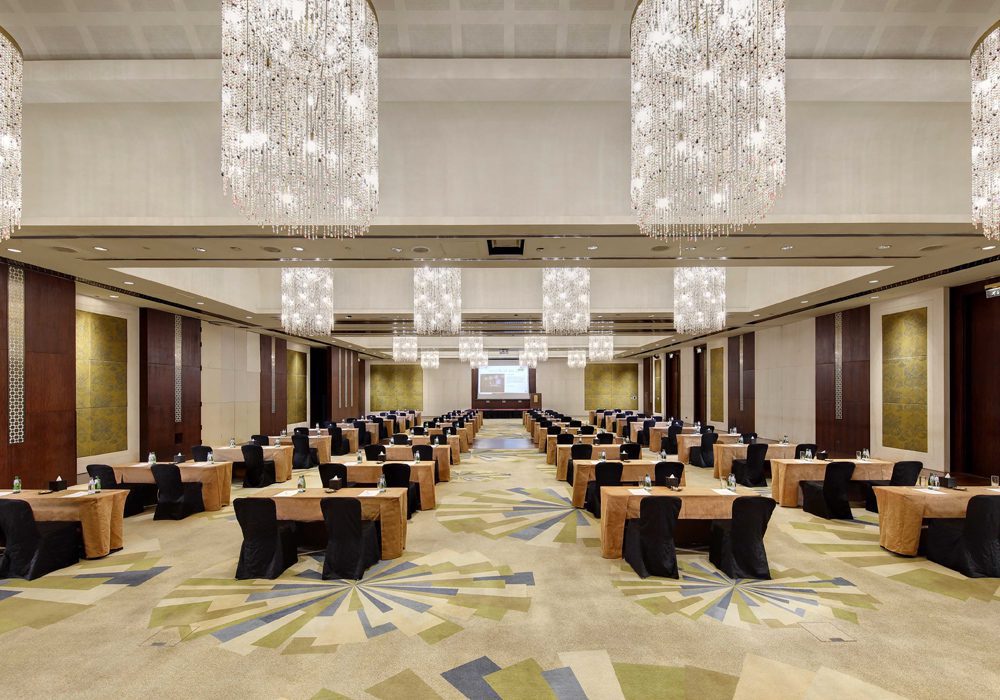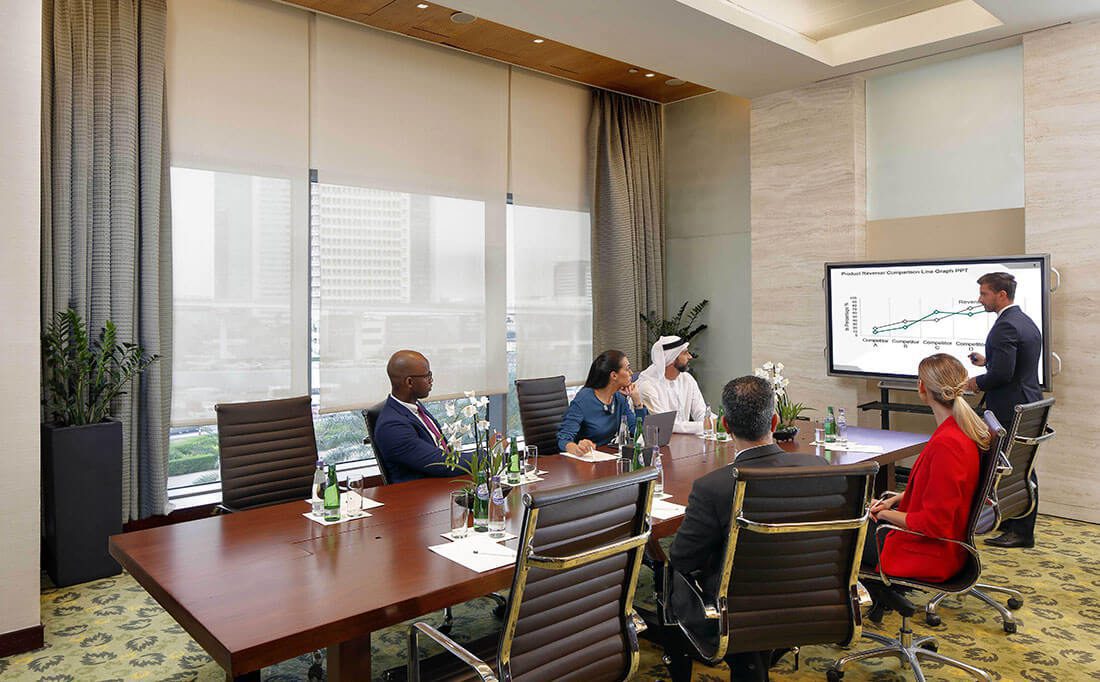13/10/2023
Uniting Global Voices in Sustainability:
Navigate COP28 with Ease and Elegance

In the heart of an ever-evolving global city, The H Dubai stands tall, epitomizing hospitality and sustainability. The hotel received The Green Key certification and is the ideal place of comfort from which to enjoy the upcoming COP28 event. This November and December, as world leaders, environmentalists, and engaged citizens converge on Expo City, Dubai for the 28th annual Conference of the Parties (COP28), our doors are wide open to welcome delegates and observers who seek a haven of comfort and serenity amidst pivotal discussions on global climate action. COP28, hosted from 30 November to 12 December 2023, heralds a crucial juncture in our shared journey towards a sustainable future. Here’s your invitation to be part of this historic moment, experiencing the epitome of Emirati hospitality and comfort at The H Dubai.
Embracing Sustainability at The H Dubai
As you immerse yourself in the transformative discussions, strategies, and collaborations at COP28, The H Dubai provides an abode that echoes the conference’s sustainability ethos. Our commitment to sustainability transcends beyond token gestures, with commitment to reducing carbon emissions and with tangible green practices and a dedication to providing eco-friendly hospitality. We welcome you to be enveloped in a space where luxury and sustainability intertwine, enabling you to be at the forefront of climate action while being cradled in mindful opulence. Located at Sheik Zayed Road, just minutes away from a metro which takes you directly to the event.
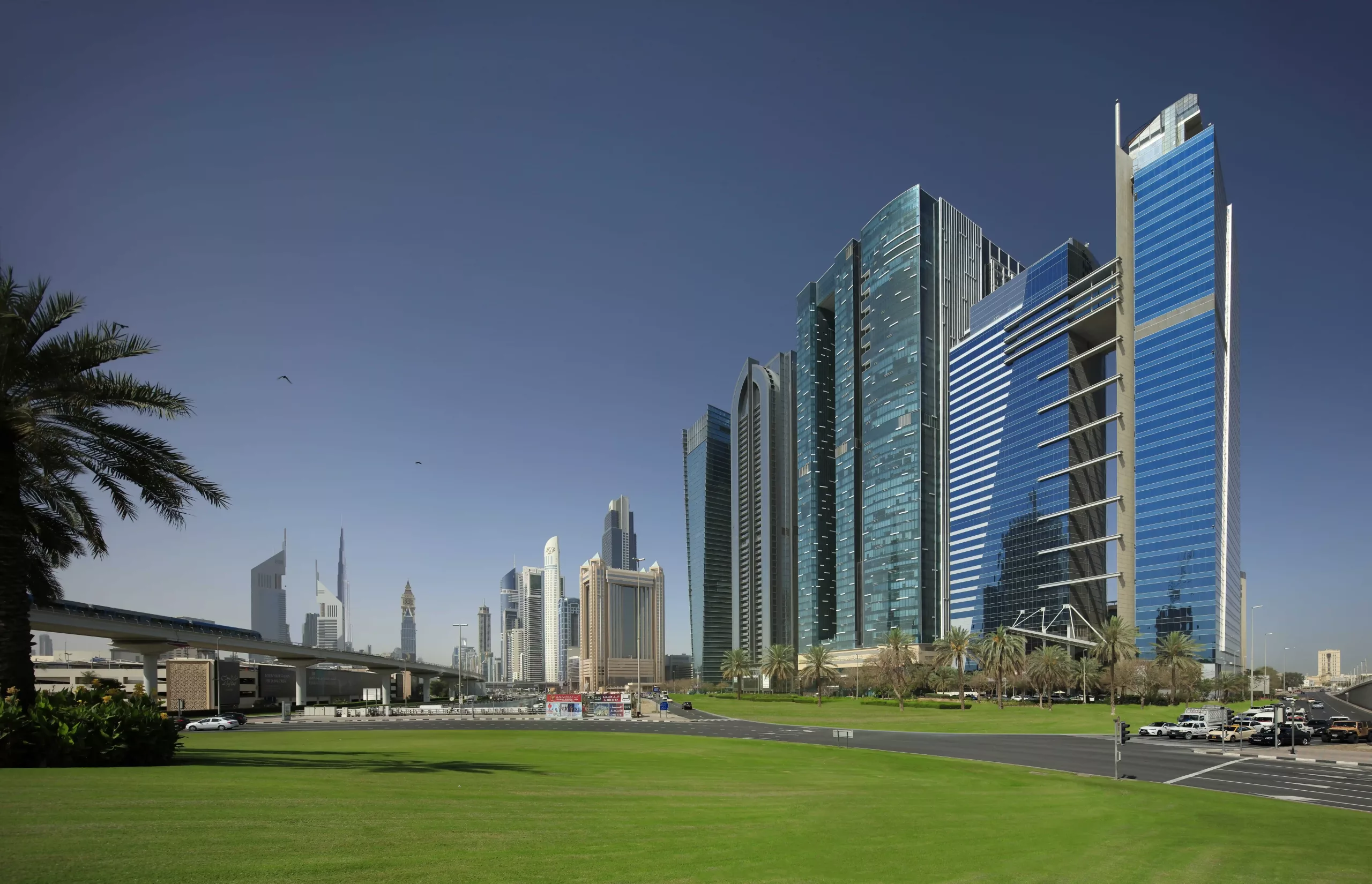
Navigating COP28: An Insight into the Blue and Green Zones
A beacon of hope and transformation, COP28 is architecturally divided into two vital zones: the Blue Zone and the Green Zone, each designated with its distinct purpose and audience.
The Blue Zone: A Conclave of Decision-Makers
Centrally located in Expo City Dubai and with convenient access via the Dubai Metro, the Blue Zone forms the nucleus of COP28, where pivotal discussions, negotiations, and decisions will take place. This secured zone, managed by the United Nations Framework Convention on Climate Change (UNFCCC), is reserved for accredited participants such as world leaders, negotiators, experts, and selected media representatives. It encompasses the core negotiation spaces, the World Climate Action Summit, country pavilions, and numerous side events, fostering a space where policy and change are sculpted. As discussions span from emissions reduction to adaptation and finance, delegates will partake in forging pathways that navigate towards the ambitious but imperative goal of limiting global warming to 1.5°C by 2050.
The Green Zone: Engaging Diverse Voices
Adjacent to the Blue Zone, the Green Zone encapsulates the essence of inclusivity and broader participation. Operational from 30 November to 12 December 2023, this space invites not only the delegates but also the public, NGOs, private sector representatives, and more, forming a melting pot where various stakeholders converge to share knowledge, innovations, and inspirations. The Green Zone extends a platform for educational, cultural, and awareness-raising activities, ensuring that the vital dialogue on climate action permeates beyond the negotiation tables, engaging and empowering society at large. Further information and programming details for this zone are eagerly anticipated and will be accessible in due course through the COP28 UAE website.
Your Stay at The H Dubai: Seamlessly Accessible to Both Zones
Choosing The H Dubai during your engagement with COP28 ensures that you are perfectly positioned to immerse in both the meticulous negotiations of the Blue Zone and the eclectic, inclusive events of the Green Zone with ease. Our commitment to sustainability and comfort provides a serene retreat to recharge, reflect, and reengage with the intensive and crucial days of the conference. While COP28
serves as a beacon for collaborative global action, Dubai, with its mesmerizing blend of tradition and futurism, offers a plethora of experiences to explore.
More than an event
COP28 is more than an event; it’s a call for unified global action towards a sustainable future. The H Dubai stands as your partner in this journey, offering not just a place to stay but a space where every detail is curated with mindfulness towards our planet.
Book your stay with us, and be part of a harmonious confluence of global dialogues, actionable change, and unmatched luxury. Together, let’s embrace the spirit of unity, action, and delivery, forging a future where we coexist sustainably with our cherished Earth. Discover more about our sustainability initiatives and exclusive offers during COP28 by visiting our website or reaching out to our dedicated team.
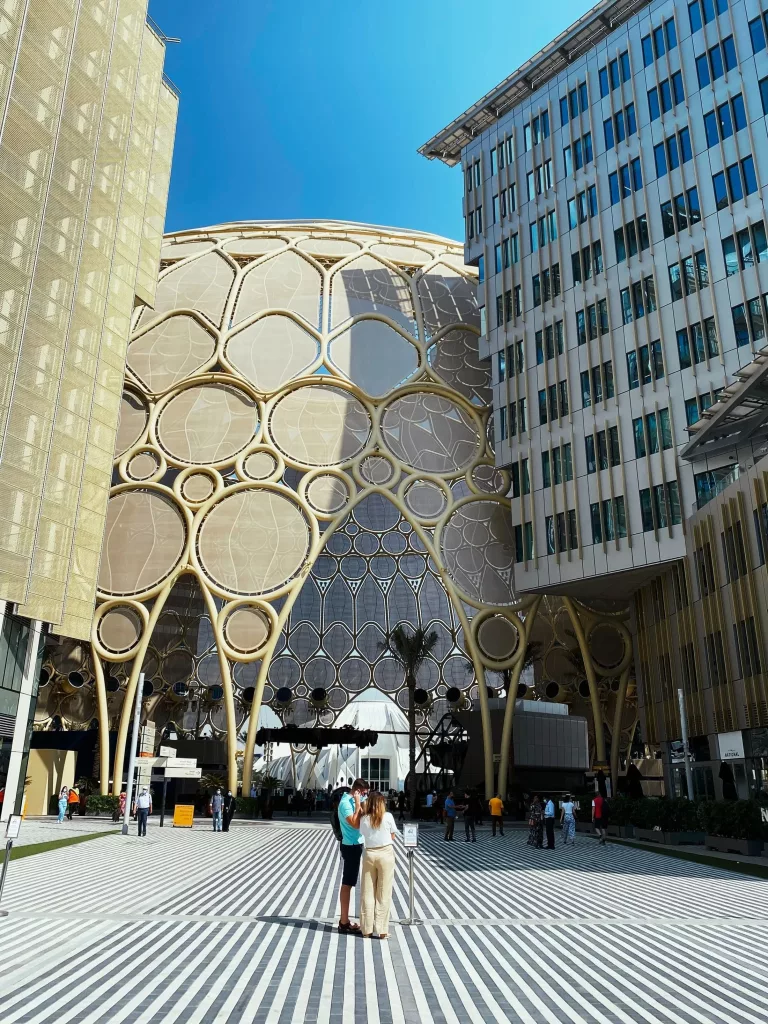
Sustainability in the Food Service Industry
19/04/2023
By Simran Tandon
Last weekend while dining with a friend, we wanted to indulge in everything new on the menu. To be honest, we weren’t able to finish it all and neither had enough portion to get it packed. There was a long moment of regret when I saw it go to waste. The human virtue of over-indulgence makes us lose sight of how much we as individuals waste food which has a compounding effect. When it comes to food-service businesses, the magnitude of this waste is immense. Upon research, I found that in 2022, 40% or 2.5 tonnes of food produced for human consumption was wasted and dumped in landfills.
With Goal 12 “Responsible Consumption and Production” being part of the ‘United Nations Sustainable Developments Goals’, the food industry players have to step up to the challenge of managing and minimizing food waste to reduce the environmental impact. So, whether you are a small food startup or a large food production establishment, give this blog a read as it will familiarize you with ways through which you can make your business more sustainable.
1. Embrace Seasonal & Local Approaches
The first step towards sustainability starts with menu planning and the food sourcing strategy. According to an American study, food wastage starts the minute we increase the food miles i.e. the distance our food travels from the farm to the final plate. By sourcing food from faraway lands for cheaper prices, we are actually increasing our carbon footprint and food loss due to the distance, packaging, and transportation involved. Rather, why not start ‘Eating with the seasons?” Commonly known as the local and seasonal approach, this method aims at creating menus that use seasonal and locally sourced ingredients like it is done at The H Dubai hotel. Along with serving dishes that are fresh and nutritious, you also uplift the vendor community around you which is an essential aspect of sustainability also. Expanding our menu thinking to incorporate the principles of farm-to-fork will not only give your restaurant an edge but also longevity of the business.
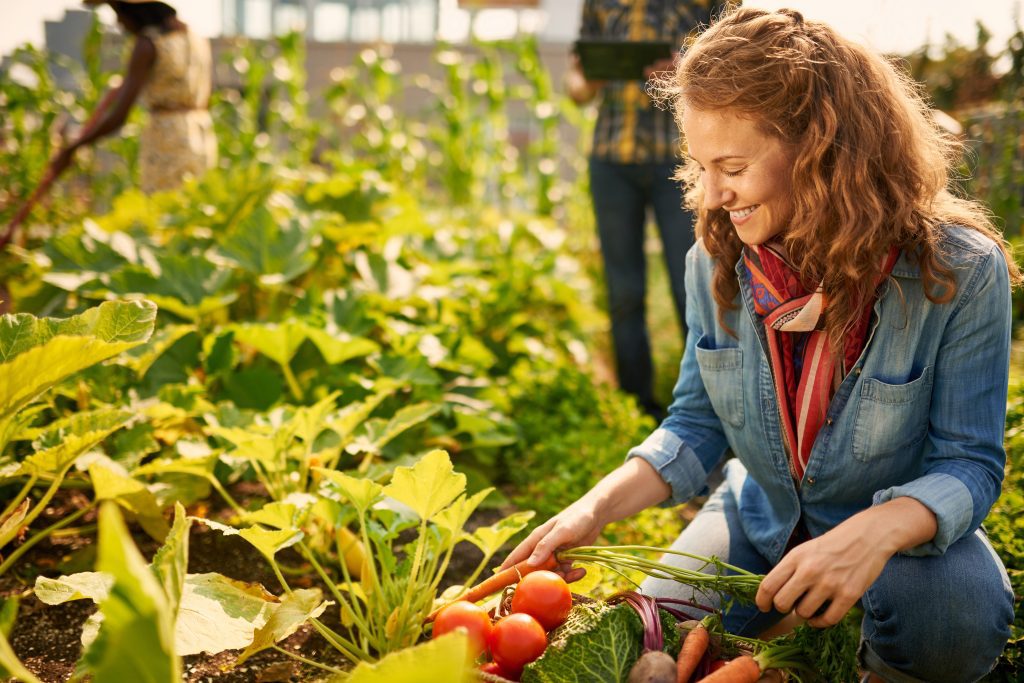
2. Use skin to seeds
When I see my grandmother and mother, they know how to use every inch of a vegetable or fruit from the skin to the seed. For instance, let’s take a watermelon, the red fruit part can be used for direct consumption or to make juices or gelato, the skin or rind can be pickled or turned into candy and the remaining seeds can be sun-dried to be eaten raw or garnish on smoothies or soups. With creativity, any product can be used from the inside out if the mission is zero-wastage. In commercial kitchens, there are always leftovers that have the potential to be recycled. From fruit skins converted into candied cocktail garnishes to making salmon tartare using salmon pieces left after butchering, surprise your guests with creative plates that are with skin to seed approach.
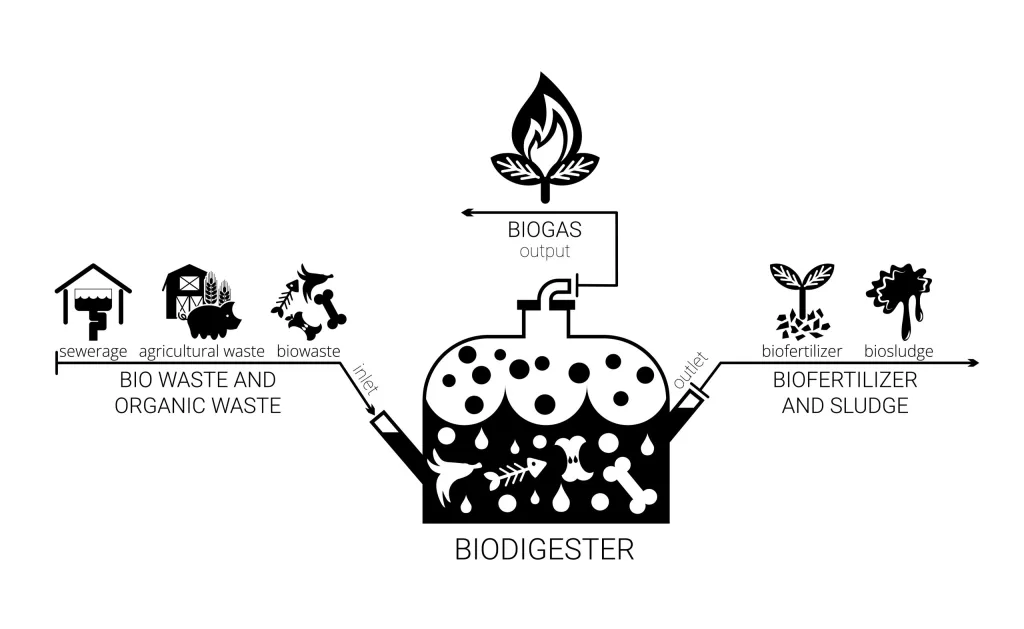
3. Take a circular approach through technology – Biodigester
One core principle of sustainability is that of the circular economy i.e. every product, ingredient, or material that comes from earth should be utilized to its fullest potential through the actions of elimination, circulation, or regeneration. When put into the food industry context, whatever ingredients you take from nature should be returned to it, not in the form of waste but something that can be put into the food system again for use. That’s when the virtues of composting or bio-digesting come into the picture. For large-scale food production operations, investing in a biodigester as part of your waste management strategy is an effective solution to follow the principles of the circular economy. After installing a biodigester, The H Dubai has been able to bio-digest 1,830kg of food waste which is equivalent to reducing 3.9 tonnes of carbon emission in the past few months. The machine can digest all food ingredients together and convert it into clean & environment-friendly water that is then used for irrigation purposes. Initiatives like these have not only assisted the hotel to reduce its carbon footprint but also given it the recognition of a Green Key Certified hotel by the Emirates Green Building Council.
4. Sharing is Caring
Our farmers actually produce 30% – 40% more food than is required for human consumption but unfortunately it gets lost in the food processing cycle and doesn’t reach all mouths. That’s when we have to step up to feed as many as we can. Food businesses often face the challenge of over-production. Instead of getting rid of this food by throwing it, share it with people who will value it. In your communities, find and connect with charities through social media to ensure that food reaches people who need it the most. Food-sharing practices are existent in almost all cultures of the world, this time let’s make them a part of the business environment to benefit all.
5. Educate your team
The biggest challenge that exists in front of Executive Chefs when it comes to running sustainable operations is “staff motivation and training”. Sustainability starts first with the people that work in the organization. Every kitchen should have one person that not only monitors the critical sustainability controls but also undertake regular classes to educate the staff about sustainability. Taking the employees to local farms, vineyards and markets will make them conscious of how much effort goes into producing food. The knowledge of the cycle i.e. from food origin to the final plate should be processed by every chef to become passionate about food sustainability. This way the employees can design better menus and bring creativity to the workplace.
Sustainability in kitchens can only be achieved when teams set achievable goals which are mapped out through action plans. If you are just starting off, start small by identifying gaps in your menus, training the staff regularly and promoting creativity in the workplace. Sustainability being the theme of 2023 in UAE, let’s start to make a positive impact on our environment.

